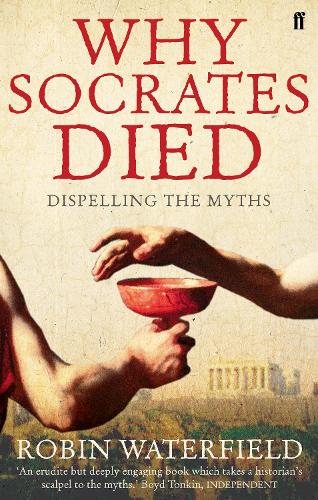
Why Socrates Died: Dispelling the Myths
(Paperback, Main)
Publishing Details
Why Socrates Died: Dispelling the Myths
By (Author) Robin Waterfield
Faber & Faber
Faber & Faber
8th April 2010
4th February 2010
Main
United Kingdom
Classifications
Adult Education
Non Fiction
Ancient history
Ancient Greek and Roman philosophy
183.2
Physical Properties
Paperback
288
Width 130mm, Height 195mm, Spine 20mm
240g
Description
Socrates' trial and death together form an iconic moment in Western civilisation. The picture we have of it - created by his immediate followers and perpetuated in countless works of literature and art ever since - is that a noble man was put to death in a fit of folly by the ancient Athenian democracy. But an icon, an image, is not reality. The trial was, in part, a response to troubled times - a catastrophic war and turbulent social changes - and so provides a good lens through which to explore the history of the period; the historical facts allow us to strip away some of the veneer that has for so long denied us glimpses of the real Socrates. Written by a scholar, but not only for scholars, this is an accessible, authoritative account of one of the defining periods of Western Civilisation.
Author Bio
Robin Waterfield's previous book was Xenophon's Retreat. In 2005, he published a new translation of Xenophon's Anabasis as Zenophon: The Expedition of Cyrus. He is also the author of Athens: A History and has translated works by Euripides, Plutarch, Herodotus, Aristotle, and Plato, as well as other works by Xenophon.
